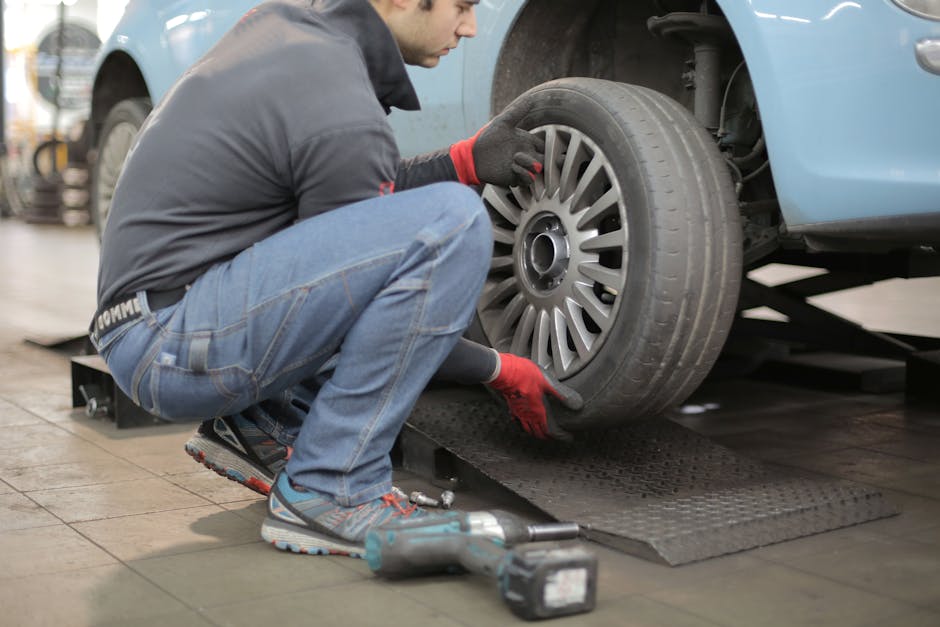 The Essential Guide to Auto Repair: Tips and Tricks for Every Car Owner
The Essential Guide to Auto Repair: Tips and Tricks for Every Car Owner
Managing a car involves the crucial task of maintenance. Routine vehicle maintenance and repair are vital for smooth operation and extended lifespan. Learning the basics of car repair can save resources and keep your vehicle performing optimally. This in-depth manual is designed to guide you through common vehicle repair tasks and provide useful tips.
Regular upkeep forms the foundation for a car’s durability. It includes tasks that should be performed at regular intervals to keep your vehicle running efficiently. Among the typical routine maintenance tasks are:
Oil changes are essential for lubricating your engine and preventing wear and tear. You should change your oil approximately every 3,000 to 5,000 miles, depending on your vehicle’s requirements and driving conditions.
Proper tire maintenance includes frequent checks of pressure, alignment, and tread wear. Properly inflated tires improve fuel efficiency and handling.
Various fluids, such as brake fluid, coolant, and transmission fluid, are vital for your car’s operation. Consistently monitor these fluids and refill them when necessary.
Understanding how to perform common repairs can help you avoid high mechanic bills.
Below are some typical problems and ways to resolve them:
Car batteries typically last between 3 to 5 years. Indicators of a failing battery include trouble starting the engine, weak headlights, and electrical malfunctions. When you notice these symptoms, consider replacing the battery.
If brake pads are worn, they may emit squealing or grinding noises. Inspect brake pads regularly and replace them as required. If you experience a spongy brake pedal or reduced braking power, it’s crucial to address these issues immediately.
Common causes of engine overheating include a defective thermostat, low coolant, or a broken water pump. If your engine overheats, pull over safely and let it cool before checking the coolant level or seeking professional help.
Effective auto repair involves a mix of preventive measures and timely actions.
Keep these pointers in mind:
Perform routine checks on critical vehicle components, including the engine, brakes, and tires. Detecting problems early can prevent them from escalating into major issues.
Opt for high-quality parts that align with your car’s specifications when making replacements. High-quality parts provide enhanced performance and longer-lasting repairs.
Consult your vehicle’s owner’s manual for important information on maintenance timing and repair procedures. Following these instructions ensures optimal vehicle performance and extended lifespan.
Certain car repairs can be done by yourself, but some tasks need professional skills.
You can often perform basic repairs such as changing air filters, windshield wipers, or light bulbs with minimal tools and instructions.
Complex issues, such as engine repairs or transmission problems, generally require the expertise of a trained mechanic. Attempting these repairs without proper knowledge can lead to further damage.
Technology plays a significant role in modern auto repair. Diagnostic tools and advanced repair techniques can help identify issues more accurately and efficiently.
Today’s cars frequently feature onboard diagnostic systems that offer important details about different parts. Understanding these technologies improves your vehicle knowledge and streamlines the repair process.
Proactive maintenance helps prevent frequent car repair problems.
Follow these guidelines to ensure your vehicle stays in excellent shape:
Regularly clean both the interior and exterior of your car. Frequent washing and waxing shield the paint and prevent rust. Moreover, keeping the interior clean prevents wear and tear on upholstery and other parts.
Steer clear of harsh driving habits like rapid acceleration and abrupt braking. Gentle driving minimizes strain on vehicle components and prolongs their durability.
Listen to your car and observe any changes in performance. Unusual noises, vibrations, or warning lights should not be ignored, as they can indicate underlying problems that need attention.
Grasping fundamental auto repair and maintenance can help keep your vehicle dependable and efficient. Routine maintenance and prompt repairs contribute to a longer vehicle lifespan and an improved driving experience. Whether you choose to handle repairs yourself or rely on professional services, staying informed and proactive is the key to successful vehicle maintenance.